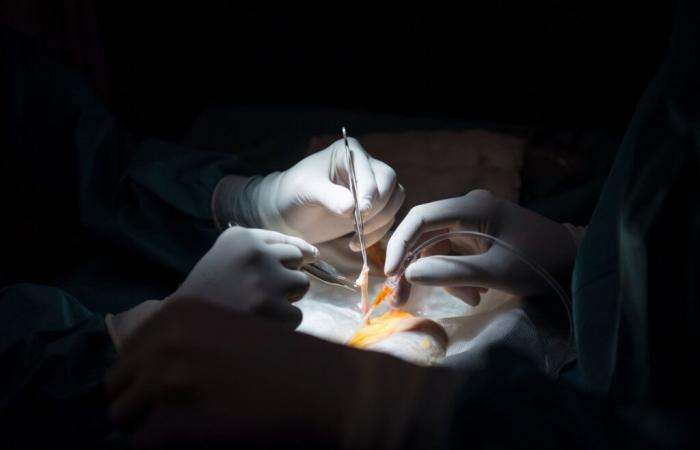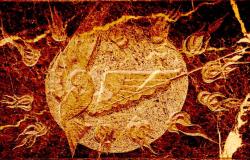TAIPEI, Taiwan — A Taiwanese surgeon and four others have been charged with illegally brokering organ transplants in China, a case that a local medical rights group called alarming as Beijing sources the organs organs with prisoners of conscience.
The surgeon, Chen Yao-li, is accused of orchestrating a criminal group that helped send 10 Taiwanese patients to China for organ transplants between 2016 and 2019, the Changhua County District Prosecutors' Office said , in southern Taiwan, in a press release issued on November 25.
Mr. Chen is accused of violating the island's law on human organ transplantation, which states that any transplant organ “shall be provided or acquired free of charge” and that “persons who negotiate organ transplants or the supply and acquisition of organs” are punishable by imprisonment of up to five years and a maximum fine of NT$1.5 million (New Taiwan Dollar; approximately 46,200 dollars or approximately 138,800 euros).
Mr. Chen worked at the Organ Transplant Center of Changhua Christian Hospital.
After prosecutors announced the indictment, the hospital said Mr. Chen had not worked at the facility since July 2022. Changhua prosecutors began investigating Mr. Chen in March of that year. .
The hospital advised residents against traveling to China for liver transplants, citing reports and the United Nations' warning of forced organ harvesting by the regime, which targets Falun Gong practitioners, prisoners of conscience, Uyghurs and Christians. The hospital added that it prohibits unethical and illegal medical conduct and respects the results of legal investigations.
David Huang, vice president and spokesperson for the Taiwan Association for International Organ Transplant Care, said the case was an important milestone.
This is the first indictment against organ traffickers since Taiwan amended its human organ transplant law in 2015 to ban the use of organs from executed prisoners, as well as the sale , purchasing and trafficking of organs.
“I hope this indictment will attract the attention of local citizens and the government. Traveling to China for an organ transplant carries medical, moral and legal risks,” Mr. Huang said in an email to Epoch Times.
Epoch Times requested comment from Chung Shan Medical University Hospital, where Mr Chen works as vice director of its liver transplant center.
Liver and kidney transplants
According to prosecutors, Mr. Chen, while working at the transplant center, directed his patients to contact an accomplice named Huang, who was the head of an unnamed biotechnology company. been revealed. Mr. Huang reportedly arranged for six Taiwanese patients to receive liver or kidney transplants at a Chinese hospital in Qingdao, a city in eastern China's Shandong province.
Mr. Huang allegedly charged each of the six patients between 5 and 7.5 million NT$ (approximately 154,000 to 231,000 dollars, or between approximately 146,000 and 219,00 euros) for a liver transplant, and between 3 and 3.5 million NT$ (i.e. approximately 92,400 to 107,800 dollars or approximately 87,700 to 102,300 euros) for a kidney transplant. Mr. Huang's wife, surnamed Yang, then connected the patients with doctors at the Qingdao University-affiliated hospital to arrange the surgeries.
According to prosecutors, Mr. Chen also went to China's Qingdao Hospital to “give instructions” in the operating room while liver operations were being performed.
Furthermore, Mr. Chen allegedly asked a Taiwanese nurse assistant, named Hsieh, to go to China to provide post-operative care for a payment of 200,000 NT$ (approximately 6,150 dollars or 5,835 euros) per patient.
Mr. Chen also worked with an accomplice named Lin, who had for years provided “organ transplant services” between Taiwan and China, to have four Taiwanese patients undergo kidney or liver transplants in Changsha, a city in Hunan province, central China. The two men then shared the amounts paid.
Prosecutors are seeking a six-year sentence for Mr. Chen and a three-year sentence for each of his four accomplices. They want to confiscate all of the group's illegal income, which amounts to approximately NT$20.4 million (or $628,000 or 596.00 euros).
Mr. Chen reportedly earned more than NT$14.8 million (approximately $455,600 or 432,300 euros) during this three-year period. He returned $83,060 (about 78,800 euros) during the investigation, and prosecutors confiscated his property to prevent him from “profiting from this illegal income,” the Changhua prosecutor's office said.
Ms. Hsieh must now return NT$1.1 million (about $33,800 or 32,000 euros) in illegal earnings as part of a deal reached with prosecutors, who agreed to delay charges against the nurse .
Organ transplants in China 'very risky,' prosecutors say
Taiwanese prosecutors have warned people of the risks linked to organ transplants in China.
Most affected patients only survived two or three years after organ transplants. Some died a week after returning to Taiwan.
“Organ transplant operations that involve intermediaries and are not transparent are very risky,” reads the press release.
In 2019, the London-based China Tribunal concluded that forced organ harvesting was being practiced on a “large scale” in China, with Falun Gong practitioners being the main source of organs. Practitioners of Falun Gong, a spiritual practice also called Falun Dafa, have been the target of persecution orchestrated by the Chinese regime since 1999.
The U.S. House of Representatives passed the Falun Gong Protection Act (HR 4132) in June.
If passed, the bill would require the president to provide relevant congressional committees with a list of foreign individuals who “knowingly and directly participated in or facilitated non-consensual organ harvesting in the People's Republic of China.” . People on this list would face sanctions including being banned from entering the United States.
Senator Marco Rubio (R-Florida) introduced the Senate version (S.4914) of the legislation in July. Mr Rubio was nominated by President-elect Donald Trump to serve as US Secretary of State.
David Huang of the Taiwan Association for International Organ Transplant Care praised the legislative efforts in the United States. If the Senate passes the legislation, he said it would be a “historic moment in the making.”
How can you help us stay informed?
Epoch Times is a free and independent media outlet, receiving no public support and not belonging to any political party or financial group. Since our creation, we have faced unfair attacks to silence our information, particularly on human rights issues in China. This is why we are counting on your support to defend our independent journalism and to continue, thanks to you, to make the truth known.






